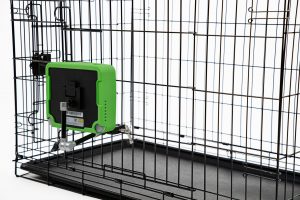Abstract
The use of artificial intelligence (AI) algorithms in diagnostic radiology is a developing area in veterinary medicine and may provide substantial benefit in many clinical settings. These range from timely image interpretation in the emergency setting when no boarded radiologist is available to allowing boarded radiologists to focus on more challenging cases that require complex medical decision making. Testing the performance of artificial intelligence (AI) software in veterinary medicine is at its early stages, and only a scant number of reports of validation of AI software have been published.
The purpose of this study was to investigate the performance of an AI algorithm (Vetology AI®) in the detection of pleural effusion in thoracic radiographs of dogs. In this retrospective, diagnostic case–controlled study, 62 canine patients were recruited. A control group of 21 dogs with normal thoracic radiographs and a sample group of 41 dogs with confirmed pleural effusion were selected from the electronic medical records at the Cummings School of Veterinary Medicine. The images were cropped to include only the area of interest (i.e., thorax). The software then classified images into those with pleural effusion and those without. The AI algorithm was able to determine the presence of pleural effusion with 88.7% accuracy (P < 0.05). The sensitivity and specificity were 90.2% and 81.8%, respectively (positive predictive value, 92.5%; negative predictive value, 81.8%). The application of this technology in the diagnostic interpretation of thoracic radiographs in veterinary medicine appears to be of value and warrants further investigation and testing.
Thiago Rinaldi Müller,Mauricio Solano,Mirian Harumi Tsunemi
First published: 22 April 2022 https://doi.org/10.1111/vru.13089
Previous presentation or publication disclosure: : The results of this study were presented at the 2021 ACVR Annual Scientific Meeting, Virtual meeting, October 20–23, 2021.






